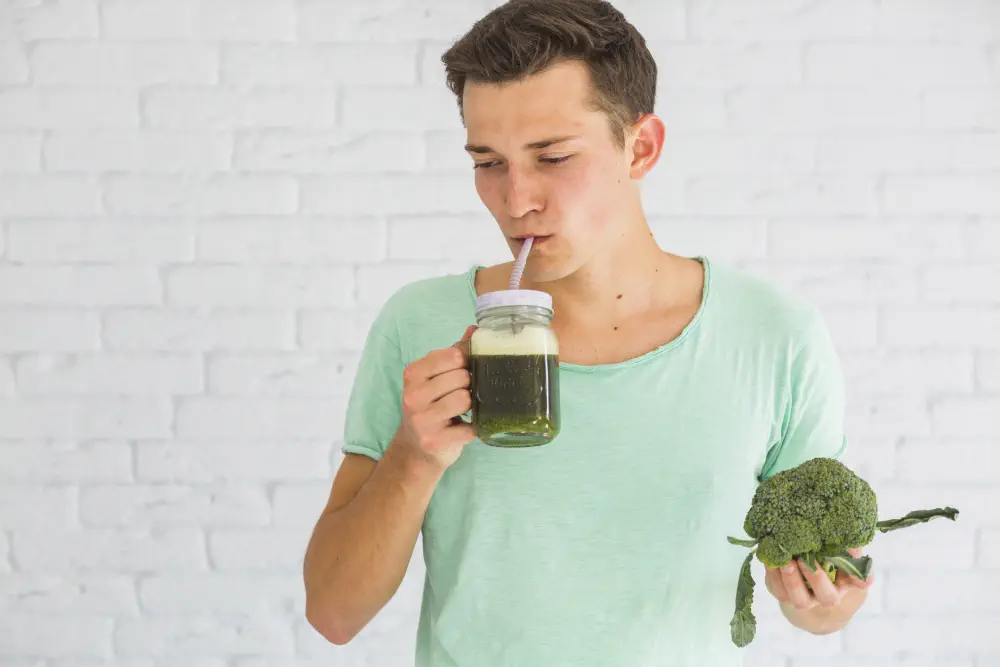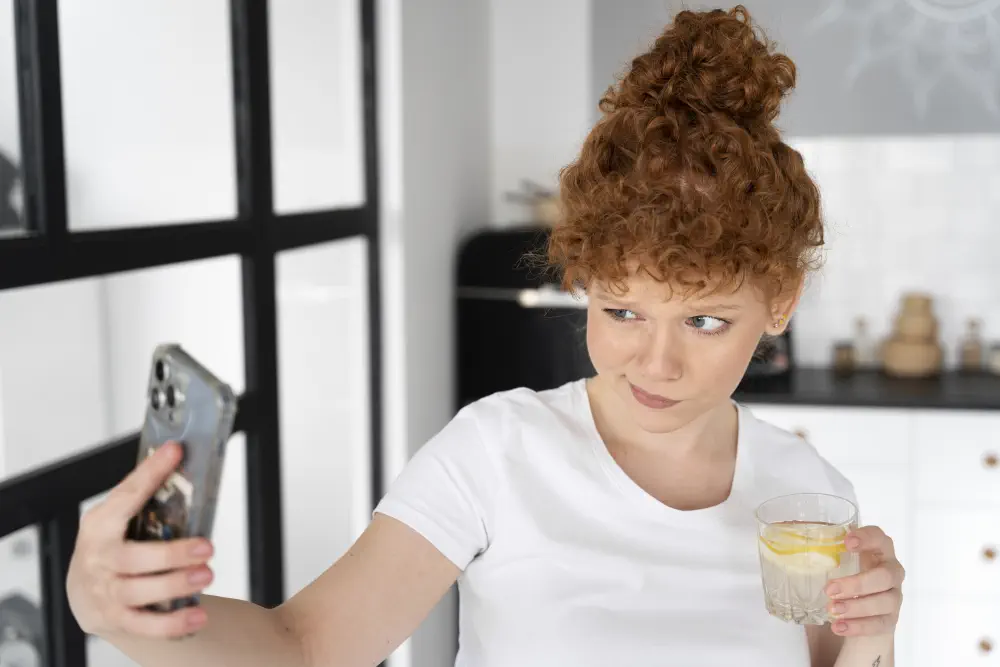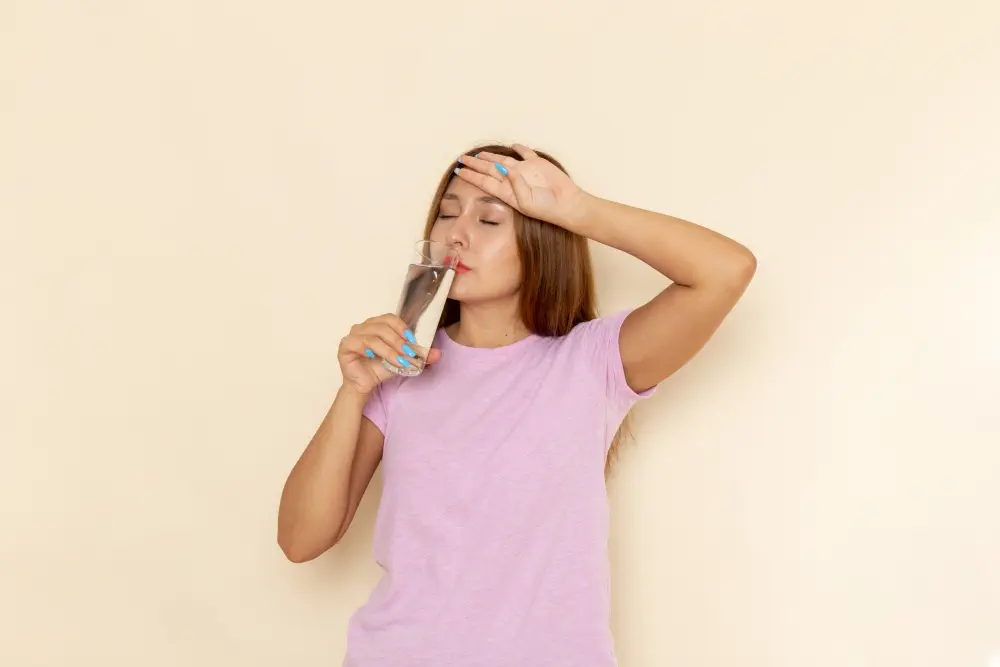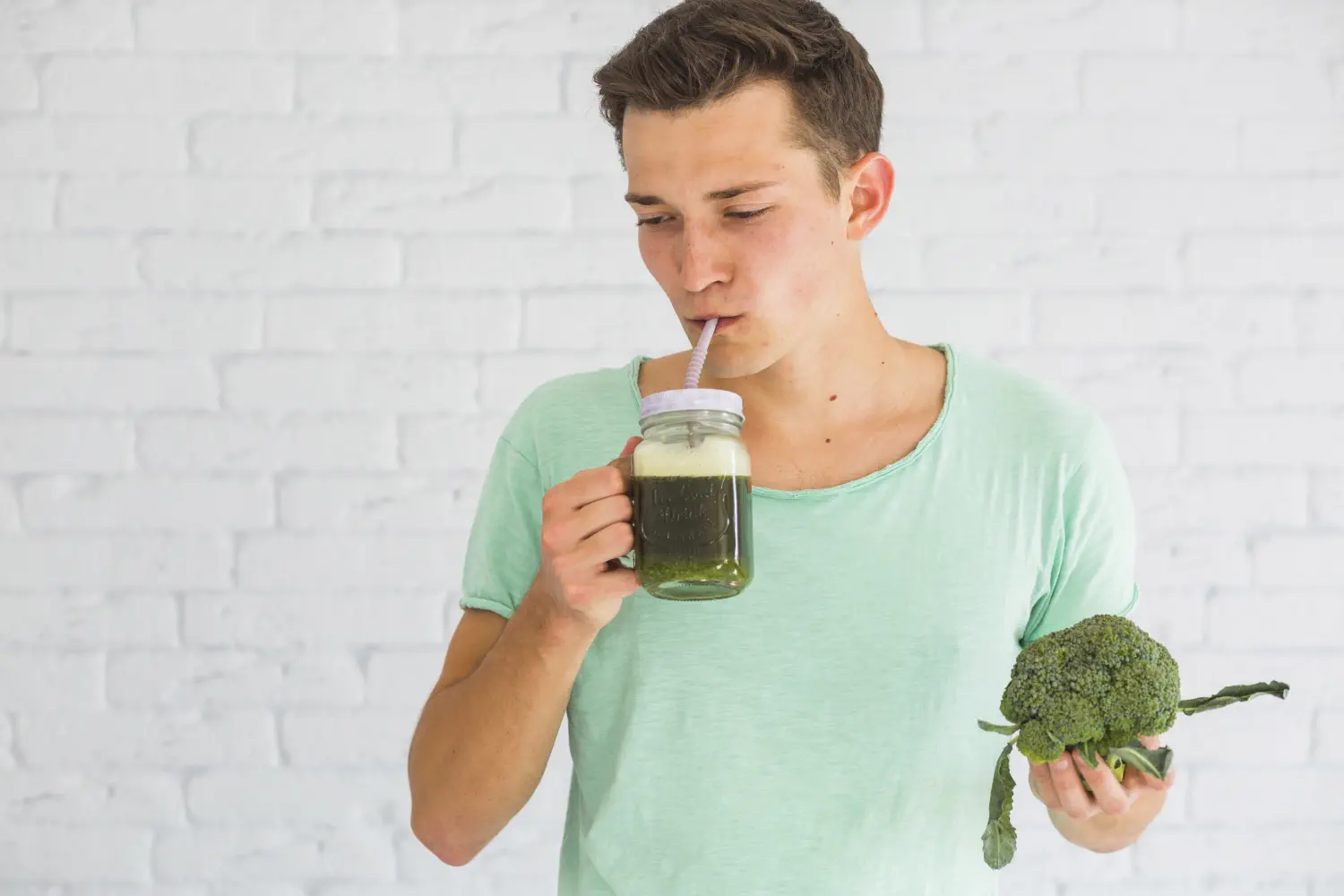We offer medical detox and multiple addiction treatment options in our
luxury treatment centres in Port Hope, Cobourg, and Ottawa.
11 Steps to Quit Drinking and Start Living Healthier
Breaking free from alcohol takes guts. Most Canadians who struggle with drinking know something needs to change but feel overwhelmed by where to start. The good news? Recovery doesn't happen overnight, and you don't need to figure it all out at once. These eleven practical steps break down the process into manageable pieces that actually work.

Key Takeaways
- Medical guidance prevents dangerous withdrawal complications
- Removing alcohol from your space eliminates daily temptations
- New routines fill the gap left by drinking habits
- Support networks provide accountability when motivation wavers
- Social strategies help you navigate parties and events confidently
- Tracking progress reveals improvements you might otherwise miss
- Setbacks don't erase progress - they're learning opportunities
- Long-term success requires ongoing attention and lifestyle changes
Why Should You Honestly Assess Your Current Relationship with Alcohol?
Most people downplay how much they actually drink. Sound familiar? Before changing anything, spend two weeks tracking every drink without judgment. Write down when you drink, how much, and what triggered the urge.
Notice the patterns. Do you reach for wine after stressful workdays? Beer during hockey games? Cocktails when socializing? These patterns reveal why alcohol has become woven into your daily routine.
Ask yourself tough questions: Has drinking caused problems at work or damaged relationships? Do you drink alone or hide how much you consume? Have previous attempts to cut back failed? Do you feel anxious when alcohol isn't available?
The gap between problem drinking and addiction matters. Problem drinking causes negative consequences but doesn't always involve physical dependence. Addiction typically includes tolerance (needing more for the same effect), withdrawal symptoms, and continued use despite serious problems.
Write down your personal reasons for quitting. Better sleep? Improved relationships? More money? Professional goals? Keep this list handy - you'll need it during tough moments ahead.
When Is Medical Supervision Necessary During Alcohol Cessation?
Alcohol withdrawal kills people. That's not meant to scare you, but it's reality. If you've been drinking heavily for months or years, your body has adapted. Suddenly stopping can trigger dangerous symptoms.
Watch for these warning signs: shaking hands, sweating, nausea, or anxiety when you haven't had a drink for several hours. These suggest physical dependence requiring medical management. Severe symptoms like hallucinations, seizures, or confusion demand emergency care immediately.
Healthcare providers prescribe medications that safely manage withdrawal. Don't attempt "cold turkey" if you're drinking daily or consuming large amounts regularly. The risks aren't worth it, especially when Canadian healthcare covers addiction treatment services.
Medical detox provides 24-hour monitoring during the most dangerous withdrawal phase. Previous unsuccessful quit attempts with severe symptoms increase your risk and make professional supervision even more critical.
How Can You Effectively Remove Alcohol from Your Environment?
Out of sight, out of mind works. Remove every bottle, can, and flask from your home, car, and office. Don't keep "just one bottle for guests" - that's your addiction talking.
Change your daily routes to avoid liquor stores and bars you frequented. Rearrange furniture if certain spots trigger drinking memories. Replace wine glasses with new drinkware to break visual associations.
Tell family and friends about your decision. Ask them to store their alcohol elsewhere during your early recovery. Some relationships might need distance if they revolve around drinking activities. That's okay - protecting your sobriety comes first.
Create positive environmental cues instead. Place motivational books, exercise equipment, or healthy snacks where you previously kept alcohol. Your surroundings should support your goals, not sabotage them.
What New Habits Should Replace Your Drinking Routines?
Nature abhors a vacuum. Simply removing alcohol without replacement leaves dangerous empty space. Your brain needs alternative ways to handle stress, boredom, and social anxiety.
Identify what alcohol provided. Evening drinks for stress relief? Replace with exercise, baths, or meditation. Social drinking for confidence? Practice conversation starters and breathing techniques.
Stress Busters That Actually Work:
- Daily walks (even 10 minutes helps)
- Creative activities like drawing or music
- Gardening or other outdoor activities
- Learning new skills through online courses
Social Alternatives:
- Coffee dates instead of happy hour
- Fitness classes or sports leagues
- Volunteer work in your community
- Book clubs or hobby groups
Physical activity deserves special mention. Exercise produces natural endorphins that improve mood and reduce cravings. Start with activities you enjoy rather than forcing intense workouts.
Build new evening routines that promote better sleep. Read, take warm baths, practice gentle stretches, or listen to podcasts. Consistency helps your body adapt to alcohol-free relaxation.

How Do You Build a Strong Support Network for Sobriety?
Isolation kills recovery. You need people who understand your struggle and celebrate your progress. Recovery thrives with strong social support while withering in isolation.
Professional counselors offer specialized addiction expertise. Individual counselling helps develop personalized coping strategies and addresses underlying issues driving your alcohol use.
Support groups connect you with others facing similar battles. AA meetings happen throughout Canada, while SMART Recovery offers alternative approaches focusing on self-management. Online groups provide options when transportation or scheduling creates barriers.
Family and friends need education about addiction recovery. Explain that recovery involves potential setbacks, not just deciding to "stop drinking." Ask for specific support - attending alcohol-free events together, regular check-ins, or simply listening without judgment.
Develop accountability partnerships with people committed to healthy changes. Regular conversations provide motivation when enthusiasm wanes and help you stay committed to recovery goals.
What Strategies Help Navigate Social Situations Without Alcohol?
Social events trigger intense cravings and peer pressure. Preparation prevents awkward moments and builds confidence for navigating these high-risk situations successfully.
Plan your escape route. Drive yourself or arrange transportation so you can leave when uncomfortable. Eat before arriving to avoid drinking on an empty stomach. Bring non-alcoholic drinks you actually enjoy.
Responses to Social Pressure:
- "I'm not drinking tonight, thanks"
- "I'm the designated driver"
- "Taking a break for health reasons"
- "Trying to sleep better lately"
Master deflection by changing subjects quickly after declining drinks. Ask about their work, recent trips, or interests. Most people respect simple "no thanks" without requiring detailed explanations.
Choose events strategically during early recovery. Prioritize activity-focused gatherings - dinner parties, outdoor events, cultural activities - over parties where heavy drinking is expected.
Build relationships with people who support your sobriety. Quality friendships improve when alcohol isn't the primary bonding activity.
How Can You Manage Cravings and Urges Effectively?
Cravings feel overwhelming but they're temporary. Most last 15-20 minutes if you don't act on them. They're like waves - intense initially, then they pass naturally.
The HALT method identifies common triggers: Hungry, Angry, Lonely, or Tired. Address these states directly rather than masking them with alcohol. Eat nutritious snacks, process anger through exercise, call supportive people, or rest when exhausted.
Emergency Craving Toolkit:
- Call someone from your support network
- Take hot showers or cold walks
- Do jumping jacks or push-ups
- Practice deep breathing exercises
- Watch funny videos or listen to music
- Clean something (seriously, it works)
Distraction techniques work because cravings are time-limited. Keep this list accessible for moments when thinking clearly becomes difficult.
Long-term craving reduction happens through lifestyle changes addressing underlying triggers. Regular exercise, adequate sleep, stress management, and healthy relationships all reduce craving frequency and intensity over time.

Why Is Addressing Underlying Mental Health Crucial for Success?
Many people drink to manage untreated anxiety, depression, trauma, or chronic stress. Removing alcohol without addressing root causes creates a shaky foundation for recovery.
Self-medication patterns develop when alcohol temporarily relieves psychological pain. Social anxiety leads to pre-party drinking. Work stress triggers evening wine habits. Depression symptoms improve briefly with alcohol, creating dangerous dependence cycles.
Professional mental health support becomes essential when co-occurring conditions exist. Therapists specializing in addiction treat substance use and underlying mental health issues simultaneously rather than separately.
Common co-occurring conditions include anxiety disorders, depression, PTSD, and bipolar disorder. Each requires specific treatment approaches that work alongside addiction recovery.
Essential Stress Management Skills:
- Progressive muscle relaxation
- Mindfulness meditation
- Regular exercise routines
- Healthy sleep habits
- Communication and boundary setting
Don't attempt self-diagnosis or treatment. Professional evaluation ensures accurate diagnosis and appropriate treatment that supports rather than undermines recovery goals.
How Does Tracking Progress Maintain Motivation During Recovery?
Visible progress provides motivation when benefits feel abstract. Documentation helps recognize improvements that might otherwise go unnoticed and encourages continued effort toward goals.
Physical health improvements begin immediately. Sleep quality often improves within days. Energy increases as your body stops processing alcohol's depressant effects. Skin clears up and digestive issues resolve quickly.
Financial tracking reveals shocking savings. Calculate previous weekly alcohol spending and track money saved. Many people discover they spent thousands annually on alcohol. Redirect savings toward gym memberships, hobbies, travel, or debt reduction.
Recovery Timeline:
| Timeframe | Physical Changes | Mental Changes | Social Changes |
| 1-3 days | Sleep improves, headaches fade | Anxiety decreases, clarity returns | More present conversations |
| 1 week | Blood pressure drops, energy rises | Mood stabilizes, motivation returns | Better relationship interactions |
| 1 month | Liver function improves, skin clears | Memory sharpens, confidence builds | Deeper connections form |
| 3-6 months | Weight stabilizes, fitness improves | Stress management improves | Social anxiety decreases |
| 1 year | Cardiovascular health optimal | Emotional regulation mastered | Strong sober network established |
Journal writing processes emotions and identifies patterns. Record daily moods, triggers, successful strategies, and challenges. Over time, patterns emerge that help anticipate and prepare for difficult situations.
Celebrate milestones with rewards supporting recovery goals. Plan special meals, purchase wanted items, or engage in joyful experiences without compromising sobriety.
What Should You Do When Setbacks or Relapses Occur?
Relapses happen. They don't indicate failure or inability to achieve sobriety. Understanding setbacks as learning opportunities helps you return to recovery faster with valuable insights.
Stop drinking immediately when you recognize what's happening. Don't use relapse as an excuse for extended consumption. "I already messed up today" thinking creates dangerous spiral patterns.
Analyze circumstances without harsh self-judgment. What triggers led to drinking? Were you hungry, angry, lonely, or tired? Did you skip support meetings or avoid calling your sponsor? Did overconfidence lead to high-risk situations?
After a Relapse:
- Ensure physical safety, avoid additional drinking
- Contact support system immediately
- Schedule therapy or medical appointments
- Attend support group meetings
- Recommit with adjusted strategies
Learn from each setback to strengthen future efforts. Maybe you need more frequent therapy, different medications, or stronger environmental controls. Perhaps certain social situations remain too challenging for your current recovery stage.
Professional help becomes especially important after relapses. Don't view seeking help as defeat - view it as taking recovery seriously.

How Do You Maintain Long-term Sobriety and Prevent Future Relapses?
Long-term recovery requires ongoing attention beyond initial quitting. Maintenance strategies prevent complacency and help navigate life changes without returning to alcohol.
Warning sign recognition identifies recovery threats before actual drinking occurs. Increased stress, relationship conflicts, job changes, or major transitions can trigger vulnerability. Notice sleep pattern changes, mood shifts, social withdrawal, or decreased recovery activity participation.
Continued personal growth prevents stagnation that sometimes leads to relapse. Pursue education, career advancement, creative projects, or relationship improvements providing fulfillment beyond simply not drinking.
Sobriety Maintenance Essentials:
- Regular therapy sessions
- Support group participation
- Annual medical checkups
- Stress management practice
- Healthy relationship cultivation
- Physical fitness prioritization
Identity shifts from "trying not to drink" to "doesn't drink" happen gradually. This transformation feels liberating because sobriety becomes natural rather than constant effort.
Build alcohol-free traditions bringing joy and connection. Host dinner parties, organize outdoor adventures, create holiday traditions that don't revolve around drinking. These positive associations strengthen sobriety commitment while enriching relationships.
Recovery is a lifelong process, not destination. Ongoing attention to physical and mental health, supportive relationships, and personal growth maintains the foundation supporting your alcohol-free life.
Taking Your First Step Toward Healthier Living
Quitting alcohol transforms everything - relationships deepen, health improves, finances strengthen, goals become achievable again. The process demands commitment and often professional support, but millions successfully build fulfilling alcohol-free lives.
Recovery looks different for everyone, but principles remain consistent: honest assessment, professional guidance when needed, environmental changes, healthy habits, strong support networks, and ongoing maintenance. Some achieve sobriety independently while others benefit from comprehensive treatment programs.
The Canadian Centre for Addictions understands recovery requires personalized approaches addressing individual circumstances, co-occurring conditions, and unique challenges. Professional support dramatically improves success rates while ensuring safer withdrawal and long-term maintenance.
Your healthier life begins with single step. Whether removing alcohol from your environment, scheduling medical evaluation, or reaching out for support, taking action today moves you closer to the alcohol-free life you deserve.
FAQ
How long does it take for alcohol cravings to go away completely?
Cravings typically decrease significantly within 3-6 months, though some experience occasional mild urges for up to a year. Frequency and intensity diminish dramatically with proper coping strategies.
Can I quit drinking on my own, or do I always need professional help?
Some quit independently, but professional help improves success rates and ensures withdrawal safety. Medical supervision becomes essential with physical withdrawal symptoms or heavy long-term drinking.
How much money will I save by quitting drinking?
Average Canadians spend $1,000-$3,000 annually on alcohol, though heavy drinkers spend much more. Most are surprised by actual savings within first few months.
Will my relationships improve after I stop drinking alcohol?
Relationships typically improve significantly as you become more emotionally available, reliable, and authentic. Some drinking-based relationships may fade while healthier connections develop.
What are the first signs that show my body is healing from alcohol?
Initial signs include improved sleep, increased energy, clearer skin, better digestion, and enhanced mental clarity appearing within the first week and continuing throughout recovery.






